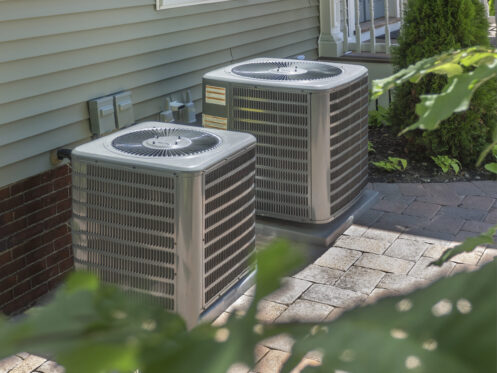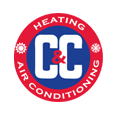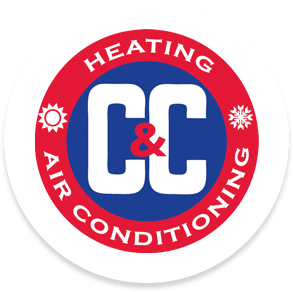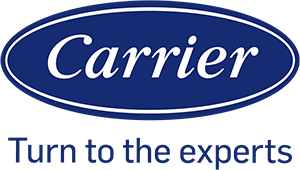Getting Your Heat Pump Ready For Summer

In ideal operating conditions, heat pumps are easily the most efficient HVAC equipment type currently available. Some heat pumps can produce up to four times the cooling or heating energy that they use in electric energy. In Detroit, MI, heat pumps are the perfect choice for summertime cooling, especially when they’re properly maintained. The following is everything you need to know about getting your heat pump summer ready.
Schedule Routine Heat Pump Maintenance
Although you can change the air filter in your heat pump and perform other minor maintenance on your own, your heat pump still needs professional service. Professional tune-up service sets the stage for safe and efficient heat pump operation. It gives our technicians the chance to remove airflow obstructions, calibrate thermostats, and mitigate problems caused by wear and tear. From swapping out damaged and worn parts to lubricating moving components, we do it all. With our help, you can rule out problems like air leaks, refrigerant leaks, and bent or broken fan blades before the high-demand cooling season arrives.
Your Warranty Requires It
Routine maintenance is a standard requirement of heat pump manufacturer warranties. To remain compliant with these mutually binding agreements, homeowners must schedule this service at least once each year. Moreover, if you use your heat pump year-round for both heating and cooling, you may be required to schedule professional maintenance twice annually.
In Detroit, spring is the best time to have heat pumps tuned up. In winter, many locals rely on alternative heat sources given that heat pumps tend to become less efficient when outside temperatures plummet. However, if you have a heat pump that can work in this climate and use it for both heating and cooling, you should have it tuned in spring and again in autumn or early winter.
Take Care of Your HVAC Air Ducts
Central heat pumps rely on HVAC ductwork for air delivery. According to the University of Florida, even ductwork that’s well maintained can result in the loss of up to 40% of the cooling and heating energy produced by a heat pump. Although we assess ductwork during general heat pump maintenance, you should schedule a separate duct maintenance service for a much more comprehensive inspection.
Clean Your Air Vents
Before summer rolls in, wipe down all the air vents or air registers throughout your home. You can use a damp cloth to loosen and remove any thick build-up of dirt and other debris. If necessary, you can also unscrew your HVAC air vent covers and vacuum behind them. It’s also a good idea to make sure that all the vents throughout your home are open.
Have Your Air Ducts Insulated and Sealed
If you haven’t had your air ducts insulated and sealed before, spring is a good time to do so. Duct sealing and insulation will reduce both energy waste and the amount of work that your heat pump must do.
Do You Need Professional Duct Cleaning Service?
Dirty HVAC air ducts can take a major toll on your indoor air quality (IAQ). They can also make it harder for your heat pump to move air and transfer heat efficiently. Professional duct cleaning removes built-up debris from:
- Heat pump condensate drains
- Condenser and evaporator coils
- Supply and return ducts
- Air handlers
According to the National Air Duct Cleaners Association, it’s best to have air ducts cleaned every 24 to 36 months. However, the Environmental Protection Agency recommends an as-needed duct cleaning schedule, such as after pest infestation, mold infestation, or major building renovations. Pre-summer duct maintenance will limit your cooling costs and help everyone breathe a bit easier.
Taking Care of Your Heat Pump Reversing Valve
Your heat pump reversing valve is the mechanism that transitions it from winter heating to warm-weather cooling. When your indoor temperature drops below your current thermostat setting, this reversing valve should move on its own. Scheduling spring maintenance is the best way to ensure that this component is working as it should. However, if you’ve already had your annual heat pump maintenance and don’t intend to schedule it again for summer, you should report suspected reversing valve problems right away. These include prolonged hissing, bubbling, and gurgling sounds, repeated toggling between heating and cooling, and all-around erratic heat pump performance.
What to Expect When Your Reversing Valve Shifts
When used for heating, heat pumps provide slow but steady streams of relatively low-temperature heat. In fact, the heated air that comes out of your vents could be just 90 degrees Fahrenheit or less. Although this temperature is warmer than the ambient temperature of most rooms, it’s cooler than your body temperature. Thus, it’s common for new heat pump users to describe their heated air as tepid.
In spring or summer when heat pumps shift their reversing valves and reverse their operations, you might experience a similar phenomenon that lasts several hours. When first entering cooling mode, heat pumps don’t generally send out strong blasts of ice-cold air. If the air coming from your vents in spring or early summer feels lukewarm or merely cool, be patient. Although a single valve reverses a heat pump’s operations, the internal transition from heating to cooling is quite complex. It takes time for changes in the heat exchange process to have a noticeable impact on the temperature of conditioned air.
Clean up Around Your Outdoor Condenser Unit
Like air conditioners, heat pumps have indoor air handlers and outdoor condenser units. Condensers are typically installed on concrete or composite pads in back or side yards. Your heat pump condenser should always have at least two feet of clearance on all sides. Overgrown grass, weeds, shrubs, and bushes can encroach upon this component and cause it to short cycle or overheat.
Not only should you remove all debris around your condenser, but you should regularly revisit this space throughout spring and summer to repeat this task. Pulling weeds and performing other cleaning tasks around your condenser will keep many common heat pump problems at bay.
Protect Your AC Condenser From Heavy, Falling Items
In addition to maintaining adequate clearance around your outdoor condenser unit, take steps to prevent heavy items from falling overhead. Have your roof inspected, cleaned, and repaired as needed, and schedule a tree care appointment. These efforts will ensure that weak limbs and branches or broken roof tiles, shingles, and flashing don’t come crashing down and cause impact-related condenser damage.
Improve the Efficiency of Your Home
To support efficient heat pump operation, take steps to make your home more efficient. You can install more insulation, add weatherstripping to your doors and windows, and install heat or light-blocking curtains or blinds. The more efficient your home becomes, the less work your heat pump will have to do to create and maintain the indoor temperature you want.
Change Your HVAC Air Filter
Air filter changes are both the easiest and most important pre-season maintenance for heat pumps. Swap your air filter out at the start of the cooling season. Year-round, you should inspect this component monthly and change it every one to three months as needed.
We’ve been proudly serving Detroit, MI since 1948. You can count on us for quality furnace, heat pump, and AC installation, maintenance, and repairs. We also provide ductless HVAC, air duct cleaning, and advanced IAQ solutions. To find out about our preventative maintenance plan or schedule an appointment, contact C & C Heating & Air Conditioning today.





